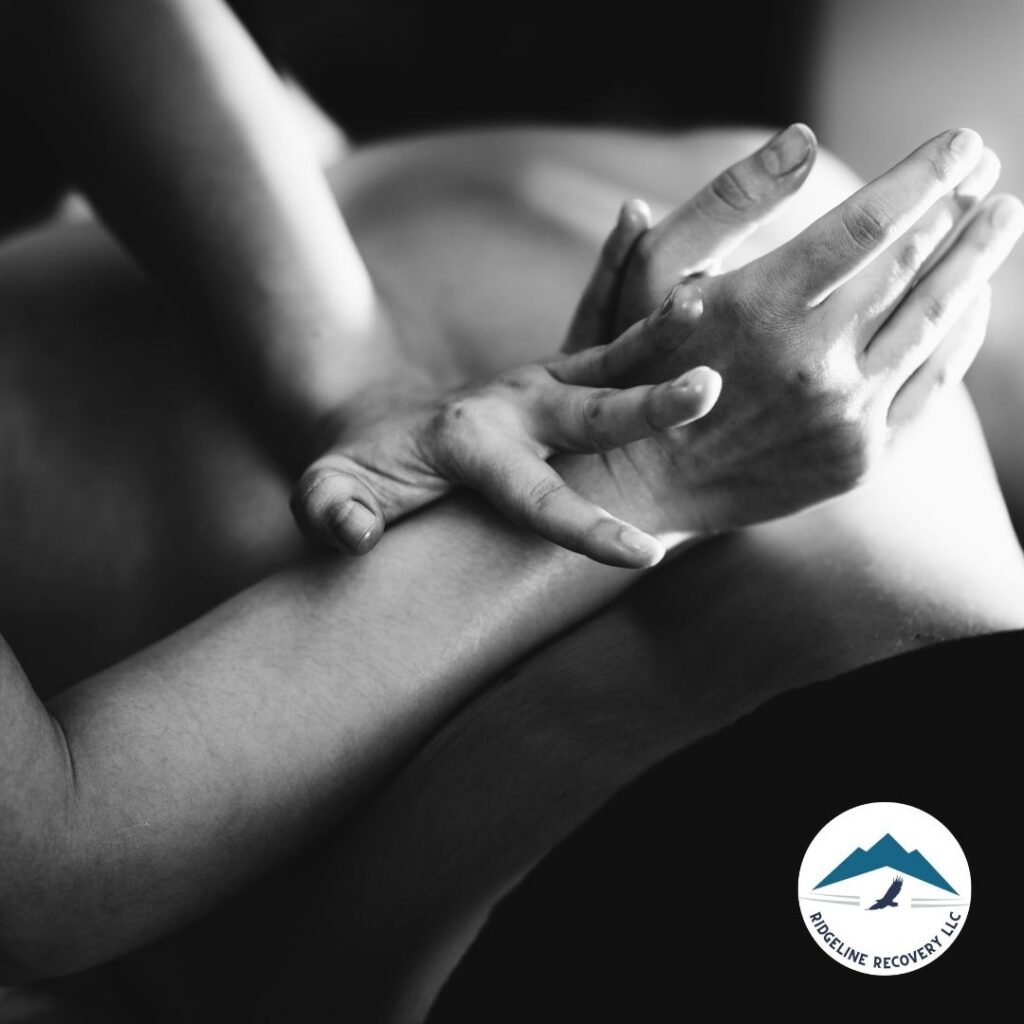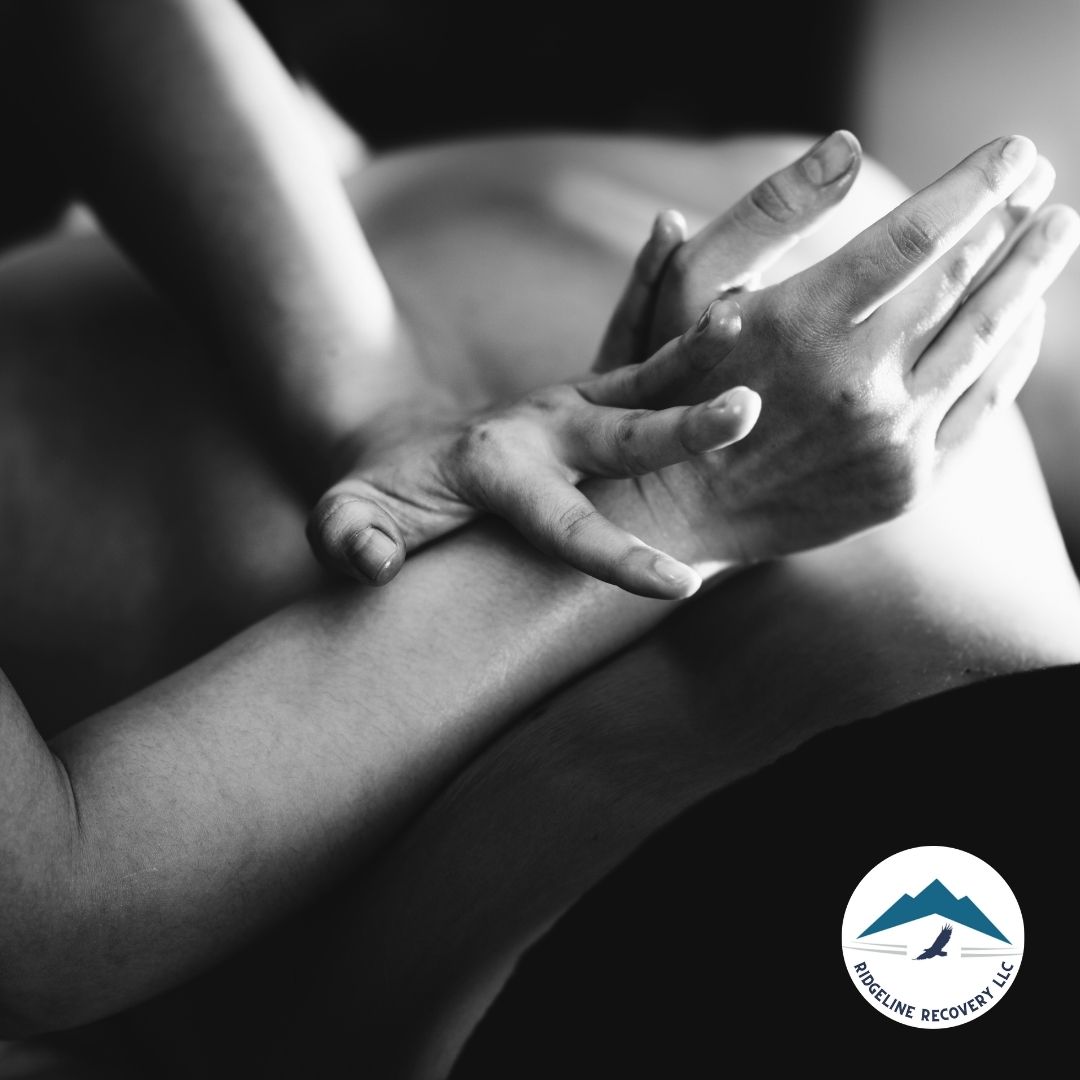When it comes to addiction, everyone has a story. It doesn’t matter who you are, where you’re from, or what your background is—addiction hits hard and leaves no room for mercy. But here’s the good news: recovery is possible, and finding the right addiction therapy services can set you on a powerful, life-changing path.
If you’re here, you or someone close to you might be thinking, “Is there an addiction therapy service near me that actually works?” Or, “What can I expect from addiction treatment?” You’re not alone, and this guide is for you.
Understanding Addiction Therapy Services
First off, what exactly are addiction therapy services?
In simple terms, addiction therapy services cover a range of treatments designed to help people overcome substance abuse and regain control of their lives. These services are specialized programs that cater to the unique needs of each person.
This isn’t a one-size-fits-all scenario. Some people respond better to one method over another, so the best programs tailor treatments specifically to meet you where you’re at.
Why Getting Addiction Therapy Services is Critical
Addiction isn’t just a “bad habit.” It’s a medical, psychological, and sometimes social issue that digs deep into your brain. It alters your thought patterns, influences your decision-making, and robs you of your sense of control.
This is why addiction therapy services are more than just a way out; they’re the structured, supportive environment you need to achieve long-term sobriety. They provide essential tools, guidance, and coping mechanisms that address not just the addiction but the underlying issues behind it.
The Top Signs It’s Time to Seek Help
- Constant cravings and urges to use.
- Withdrawal symptoms when you try to stop.
- Ignoring responsibilities—work, family, health, doesn’t matter.
- Using substances as a crutch for emotions—stress, anxiety, boredom, you name it.
- Trying to quit and failing. This isn’t a lack of willpower; addiction rewires your brain.
How to Choose the Right Addiction Therapy Services
With options around every corner, here’s how to navigate your choices:
1. Consider the Type of Program
- Outpatient: If you have responsibilities you can’t step away from but still need help, outpatient programs offer flexibility. You attend sessions but go home afterward.
- Inpatient: Perfect for those who need intensive care and a break from everyday triggers. You stay in the facility, fully immersed in recovery.
- Sober Living Homes Near Me: After completing a formal rehab program, a sober living house can give you a safe space to transition back to daily life.
2. Look at Specialized Services
Some addiction therapy services provide specialized support, which can make a huge difference. For instance:
- Vivitrol Clinics Near Me: For those struggling with opioid or alcohol dependence, Vivitrol is a non-addictive monthly shot that blocks receptors in the brain responsible for cravings.
- Mental Health Services Near Me: A significant number of people with substance use disorders also struggle with mental health issues. Mental health therapy, from a mental health therapist or mental health counselor near me, is crucial for a full recovery.
3. Insurance Coverage: Does your insurance cover the addiction therapy services you’re considering? Check with providers like Medical Mutual of Ohio or Aultcare to see what’s included.
4. Holistic Therapy Options
Look for facilities offering holistic treatments. Techniques like meditation, exercise, and nutrition plans can support your physical and mental well-being.
Diving into Different Types of Addiction Therapy
Once you’ve chosen a facility, you’ll likely encounter several types of therapy. Let’s break them down.
1. Cognitive Behavioral Therapy (CBT)
CBT is all about retraining your brain. Addiction often comes with ingrained habits, and CBT is a tool that helps you understand these patterns, shift your mindset, and replace negative behaviors with positive ones.
2. 12-Step Programs
You might be familiar with AA (Alcoholics Anonymous) or NA (Narcotics Anonymous). These are structured programs where people share experiences and support each other. The twelve-step program has been a go-to for decades because it combines accountability with a focus on personal growth.
3. Medication-Assisted Treatment (MAT)
This is especially effective for opioid and alcohol addiction. MAT combines medication (like Vivitrol or Methadone) with counseling and therapy. Remember, this isn’t substituting one addiction for another—these meds help curb cravings and manage withdrawal symptoms.
4. Dialectical Behavior Therapy (DBT)
DBT is particularly effective for individuals who may have co-occurring mental health conditions. DBT helps you manage intense emotions that often accompany addiction. It’s a bit like CBT but with an added focus on accepting and understanding feelings without letting them lead to destructive behaviors.
Navigating the Financial Aspect of Addiction Therapy
You might be asking, “How much is this going to cost me?”
Good question. The cost of addiction therapy services varies wildly. Here’s the good news: many insurance plans, including GEHA Insurance, will cover part of the cost. And if you don’t have insurance, don’t stress. Many centers offer sliding-scale fees based on your income, and some even offer financing plans.
Common Obstacles to Seeking Addiction Therapy Services
We all have doubts that keep us from taking the first step.
“I Can Do It On My Own”
Here’s the harsh truth: addiction has a high rate of relapse, especially without professional help. Getting help doesn’t make you weak; it makes you smart.
“What Will People Think?”
It’s easy to worry about the stigma, but let’s get one thing straight—taking control of your life is worth more than any opinion someone else might have.
FAQ Section
Is addiction therapy the same as rehab?
No, not exactly. Rehab typically refers to a more intensive, structured program, often inpatient. Addiction therapy can be part of rehab, but it can also be an ongoing treatment after formal rehab.
Are Vivitrol clinics near me easy to find?
Yes, Vivitrol clinics are becoming more common, especially in areas with higher rates of opioid and alcohol dependence.
How long does addiction therapy take?
It depends on individual needs and progress. Some may benefit from a few months, while others may need years of ongoing support.
Deep Dive into Addiction Therapy Services: What Really Works?
When you’re looking at options for addiction therapy services, the choices can feel overwhelming. Different therapies, different facilities, different outcomes—it’s a lot to process. But the reality is that certain principles and practices prove effective across the board. Let’s break down what makes some programs stand out and what you should look for in a top-notch recovery experience.
The Science Behind Addiction Therapy Services: Why They Work
Ever wondered why addiction therapy services work so well for some people? It’s not just luck; it’s science-backed therapy models that target how addiction works in the brain. Addiction is a condition that impacts neurotransmitters—especially dopamine and serotonin—that control our mood, motivation, and reward system.
In essence, these services work to “rewire” how your brain functions, helping you unlearn harmful patterns and establish healthy ones.
Key Therapy Models
- Behavioral Therapies: Techniques like Cognitive Behavioral Therapy (CBT) and Dialectical Behavior Therapy (DBT) target the root behaviors and thoughts fueling addiction.
- Motivational Interviewing (MI): Sometimes, addiction can kill your sense of purpose. Motivational Interviewing reignites that spark by connecting your values with your actions.
- Medication-Assisted Treatment (MAT): MAT involves using FDA-approved medications to reduce cravings and minimize withdrawal symptoms, working alongside therapies to maintain sobriety.
How Addiction Therapy Services Help With Long-Term Sobriety
Long-term sobriety requires more than just a detox. Effective addiction therapy services offer tools for life. You’re not just stopping the use of substances; you’re building a lifestyle that keeps you healthy and grounded. But how exactly does addiction therapy promote lasting sobriety?
- Building Self-Awareness: Therapy shines a light on the “why” behind the addiction, which helps individuals recognize triggers and weaknesses.
- Teaching Coping Mechanisms: Stress, boredom, and anxiety are major triggers. The right addiction therapy services give you healthy ways to deal with these feelings without resorting to substances.
- Providing Community Support: Therapy groups and sober living homes near me create a network of people who understand your struggles and can provide mutual support.
- Creating New Habits: Recovery means creating new, healthy habits that replace the urge to use. Therapies work on setting routines, physical fitness, and mental resilience that all contribute to a substance-free life.

A Closer Look at Addiction Therapy Techniques: Finding What Works for You
When it comes to addiction therapy near me, there’s no one-size-fits-all solution. Therapy should meet you where you are, with techniques that fit your personal goals, struggles, and personality. Here’s a closer look at some widely-used techniques in addiction therapy services:
1. Mindfulness and Meditation
Mindfulness is about staying present in the moment, aware of what you’re experiencing without judgment. For someone in recovery, this can be a game-changer. Mindfulness practices reduce stress, help manage triggers, and can prevent relapse by keeping individuals connected to the present instead of drowning in guilt or fear about the future.
2. Family Therapy
Addiction impacts everyone in a person’s circle, not just the individual themselves. Family therapy helps rebuild trust, open lines of communication, and address unhealthy family dynamics. It’s particularly effective for those who plan on living with family post-rehab.
3. Holistic Approaches
Recovery isn’t just about mental health—it’s about physical and spiritual wellness, too. Holistic therapy options may include fitness programs, nutritional counseling, art therapy, and yoga to heal the body and mind as a whole. These methods help to stabilize emotions and develop discipline and self-awareness.
What to Expect in an Effective Addiction Therapy Service Program
Choosing a program can feel daunting. Here’s what effective addiction therapy services should offer to ensure you’re supported and on the right path:
High-Quality Staffing
- Look for programs with licensed and experienced professionals, from therapists to mental health counselors. Staff with a solid background in addiction treatment (e.g., certified addiction counselors) offer the support you need.
Comprehensive Initial Assessment
- The best programs start with a deep-dive assessment of your mental health, addiction history, and personal goals. A thorough initial assessment allows them to create a personalized treatment plan.
Flexible Program Structures
- Inpatient vs. Outpatient: Each individual has different needs. A good addiction treatment center should offer inpatient rehab near me options for immersive care as well as outpatient services for those needing flexibility.
Making the Most of Your Time in Therapy
The effectiveness of addiction therapy services relies on both the quality of the program and the dedication of the person in it. Here’s how to maximize your success:
1. Be Open and Honest
Honesty is the key to effective therapy. This is your safe space, so be upfront about your struggles, urges, and goals. When therapists and counselors understand your true situation, they can provide targeted help.
2. Focus on Building Resilience
Therapy is about building resilience, not avoiding stress. Life will always have ups and downs, but therapy gives you the tools to cope healthily. Strategies like grounding exercises, mindfulness, and confidence-building exercises will help fortify you against future triggers.
Addiction Therapy Services: What Sets High-Quality Programs Apart?
It’s not just about finding an addiction therapy service near me—it’s about finding one that actually works for you. Here’s what separates great programs from the rest.
1. Evidence-Based Practices
Effective therapy services use evidence-based methods. This means treatments that have been studied, tested, and proven effective. Look for programs that offer therapies like CBT, DBT, and Medication-Assisted Treatment (MAT).
2. Mental Health Services Near Me Integration
Because mental health and addiction often go hand-in-hand, good programs also provide mental health therapy. This includes access to mental health therapists or mental health counselors near me and, if necessary, a partnership with nearby mental health hospitals near me.
3. Focus on Aftercare and Ongoing Support
Sobriety doesn’t end when therapy ends. Top-notch addiction therapy services will have a plan for aftercare, which might include regular check-ins, support groups, or referrals to sober living homes near me. Aftercare ensures that you have ongoing support during those critical months after treatment.
Real Stories: Successes and Setbacks in Recovery
Story 1: Overcoming Relapse
“I thought I had it handled after leaving the program. But without the right tools and the support I got from addiction therapy services, I relapsed. But the second time around, I was more committed. Therapy taught me to spot my triggers, cope with stress, and replace old habits with new ones.”
Story 2: Mental Health and Sobriety Go Hand-in-Hand
“My addiction had roots in anxiety and trauma. At first, I didn’t see the connection. But with help from a mental health counselor near me, I learned that my substance use was a way to cope with untreated mental health issues. Dealing with both at the same time made all the difference.”
Staying Sober After Addiction Therapy Services: Strategies for Long-Term Success
Long-term sobriety takes commitment, but with the right strategies, it’s achievable. Here’s what the best addiction therapy services recommend for staying on track:
1. Regular Check-Ins
Check-ins with a therapist or counselor can provide valuable accountability and support. Regular sessions are especially helpful if you’re dealing with any lingering mental health symptoms or challenges.
2. Sober Living Homes Near Me
Sober living environments offer a safe, supportive community for those who have completed formal therapy. They provide structure and fellowship, making it easier to avoid old triggers.
3. Join Support Groups Like Refuge Recovery
Groups like Refuge Recovery or AA provide ongoing support and fellowship. They also provide structured steps and principles to help guide your recovery journey.
4. Focus on Holistic Health
Physical health plays a huge role in addiction recovery. Exercise, balanced nutrition, and a sleep routine all contribute to a better mental state. This isn’t just a perk; it’s a necessity for long-term sobriety.
FAQs on Addiction Therapy Services
What’s the Difference Between Rehab and Addiction Therapy?
Rehab usually refers to a more intensive, residential program, while addiction therapy can be outpatient or ongoing care after rehab.
How Long Will I Need Therapy?
This depends on each individual, but many people find ongoing therapy to be beneficial even after formal treatment ends.
Can I Work While Attending Addiction Therapy Services?
Yes, outpatient services allow individuals to work while receiving treatment. However, inpatient options are better suited for those needing a more immersive experience.
Do Addiction Therapy Services Help With Mental Health Issues?
Absolutely. Many addiction therapy programs have licensed mental health professionals on staff to address underlying mental health issues.
How to Choose the Right Addiction Therapy Services for Your Needs
Finding addiction therapy services that fit your specific needs is crucial for a successful recovery journey. From types of therapies offered to aftercare support, the right program can make all the difference in achieving long-term sobriety. Here’s what to look for in a high-quality addiction therapy service.
1. Understanding the Different Types of Addiction Therapy Services
Addiction therapy services come in various forms, each tailored to address different aspects of addiction. Below are some of the common types available:
Cognitive Behavioral Therapy (CBT)
CBT is one of the most widely used approaches in addiction therapy services. It helps individuals identify and modify the negative thought patterns that lead to addiction behaviors. This therapy is highly effective in addressing the “triggers” that cause individuals to relapse.
Dialectical Behavior Therapy (DBT)
DBT, a type of CBT, is effective for people with intense emotions and those who might have borderline personality disorder. DBT focuses on teaching clients emotional regulation, distress tolerance, and mindfulness, making it particularly useful in addiction therapy services for those with co-occurring mental health conditions.
Contingency Management (CM)
In contingency management, patients receive tangible rewards for demonstrating positive behaviors, such as attending therapy sessions or passing drug tests. This can be a powerful motivator, especially in the early stages of recovery when cravings may still be strong.
Holistic Therapies
These approaches are gaining popularity in addiction therapy services, offering more well-rounded healing. Holistic addiction therapy services may include meditation, acupuncture, yoga, and nutritional counseling. Such therapies aim to heal the entire person, rather than focusing solely on eliminating the substance use.
Benefits of Integrating Mental Health Counseling into Addiction Therapy Services
Many individuals with addiction also experience mental health issues, such as anxiety, depression, or trauma-related disorders. Integrating mental health counseling within addiction therapy services ensures that these underlying issues are addressed, ultimately improving the success rates of recovery.
Co-Occurring Disorders: A Complex Relationship
Mental health disorders can both contribute to and result from addiction, creating a complex relationship that requires a comprehensive treatment approach. People with anxiety, for example, may use substances as a coping mechanism, which leads to dependency.
Dual Diagnosis Treatment
Dual diagnosis treatment is specifically designed for individuals who have both mental health disorders and substance use disorders. When searching for addiction therapy services, look for centers that offer dual diagnosis treatment, as this will provide a more holistic approach to your care.
Addiction Therapy Services and the Role of Family in Recovery
Family dynamics can have a significant impact on an individual’s recovery journey. Addiction often strains relationships, which can create additional challenges for those trying to achieve sobriety. Family therapy, as part of addiction therapy services, helps repair relationships and builds a supportive home environment for the individual in recovery.
Benefits of Family Involvement in Addiction Therapy Services
- Enhanced Communication: Family therapy sessions promote open, honest communication, allowing everyone to express their feelings and concerns in a safe environment.
- Understanding Addiction as a Disease: Family members gain a deeper understanding of addiction, reducing stigma and fostering empathy.
- Building a Supportive Environment: Families learn how to create a supportive atmosphere that encourages recovery rather than enabling old behaviors.
The Importance of Aftercare in Addiction Therapy Services
Aftercare is a crucial part of addiction therapy services, providing the support and guidance necessary to maintain sobriety once formal treatment ends. Effective aftercare planning involves ongoing therapy, support groups, and possibly sober living arrangements to help transition back into daily life.
Types of Aftercare Options
- Sober Living Homes: These homes provide a structured, substance-free environment that helps individuals adjust to life outside of a treatment center.
- Outpatient Counseling: Regular therapy sessions after treatment can help individuals continue addressing the challenges they face in recovery.
- Peer Support Groups: Groups like Alcoholics Anonymous (AA) and Narcotics Anonymous (NA) provide a strong support network, helping people remain committed to their recovery.
Relapse Prevention Strategies in Aftercare
Addiction therapy services should offer relapse prevention strategies, which equip individuals with tools to manage stress, identify triggers, and practice coping techniques. These strategies are especially valuable in aftercare, where the individual must navigate real-world situations without the immediate support of a therapy team.
Integrating Holistic Approaches into Addiction Therapy Services
Holistic approaches have become a popular component of addiction therapy services, as they provide well-rounded, comprehensive care. These treatments complement traditional therapies by addressing physical, emotional, and spiritual aspects of recovery.
Examples of Holistic Therapies
- Meditation and Mindfulness: Practicing mindfulness can help individuals remain focused on the present moment, reducing anxiety and stress.
- Art Therapy: Creative outlets can serve as a healthy form of expression, helping individuals process emotions related to their addiction.
- Fitness and Nutrition Counseling: Physical health is an important aspect of addiction recovery, as proper nutrition and exercise improve mental and physical well-being.
Why Holistic Approaches Are Effective
Holistic therapies help individuals develop a greater sense of self-awareness and personal responsibility. They also provide healthy coping mechanisms that contribute to a balanced lifestyle, promoting lasting sobriety.

Key Components of Effective Addiction Therapy Services
When choosing addiction therapy services, look for certain elements that set successful programs apart. High-quality programs offer personalized, evidence-based care, experienced staff, and a commitment to holistic healing.
Essential Components to Look for
- Personalized Treatment Plans: Every individual’s journey is unique, and a good addiction therapy service will customize its approach to fit the needs and preferences of each client.
- Experienced and Licensed Staff: Working with qualified professionals is essential for effective treatment, as they bring knowledge and skills that support a well-rounded recovery experience.
- Comprehensive Aftercare Support: The journey doesn’t end when treatment does. Look for programs with strong aftercare planning to ensure continued support in sobriety.
The Value of Group Therapy in Addiction Therapy Services
Group therapy is a core component of many addiction therapy services, offering a unique blend of support, accountability, and connection. Sharing experiences with peers who understand your struggles can reduce feelings of isolation and encourage growth.
Why Group Therapy Works
- Building Community: Addiction often leads to isolation, and group therapy helps people connect with others who have similar experiences.
- Accountability: Group therapy offers a built-in support system, which encourages people to stay committed to their recovery goals.
- Learning from Others: Hearing how others have coped with their challenges can provide new strategies and inspiration for one’s own journey.
Different Types of Group Therapy
Some addiction therapy services offer specialized groups that address particular aspects of addiction, such as trauma, anger management, or relapse prevention. Each type of group has its own focus, but all contribute to a well-rounded support network that fosters recovery.
Frequently Asked Questions About Addiction Therapy Services
Can Addiction Therapy Services Be Customized to Fit My Specific Needs?
Yes, effective addiction therapy services tailor their programs to meet the individual’s unique needs. From personalized treatment plans to specific therapeutic approaches, customization is key to effective care.
How Long Does Addiction Therapy Typically Last?
The length of treatment varies based on the individual’s needs, but most addiction therapy services offer both short-term and long-term options, such as 30-day, 60-day, or 90-day programs.
Will I Need Medication as Part of Addiction Therapy Services?
Medication isn’t necessary for everyone, but Medication-Assisted Treatment (MAT) can be beneficial for those struggling with severe cravings or withdrawal symptoms.
Finding Support Through Addiction Therapy Services
Taking the step toward sobriety is one of the most challenging and rewarding things you can do. Addiction therapy services offer the support, structure, and guidance needed to navigate this journey, creating a solid foundation for a healthy, substance-free life.
Whether you’re exploring inpatient, outpatient, or holistic approaches, the right addiction therapy services will prioritize your individual needs and equip you with the tools to achieve and maintain sobriety. Remember, recovery is a long-term commitment, and with the right support, a fulfilling life is within reach.
Final Thoughts: Take Action Today
Finding the right addiction therapy services can change the trajectory of your life. Don’t put off tomorrow what you can do today. Whether you’re ready to jump into inpatient drug rehab near me or start with outpatient support, take the first step.
Your path to recovery starts with action.
Call Us Now!
If you or a loved one is struggling with heroin or alcohol dependency, reach out to Ridgeline Recovery Center in Columbus, Ohio, today. At Ridgeline Recovery, we offer a path to hope and healing. Our comprehensive Addiction Recovery services include Addiction Therapy, Addiction Treatment, Vivitrol Clinic and specialized Mental Health Services designed to support your journey to recovery.
We provide Aftercare Programs and Peer Support to ensure you have ongoing assistance after treatment. Our dedicated team offers Case Management and Child Services for those needing extra support. For individuals who prefer a faith-based approach, we offer Faith-Based Recovery options.
Our programs feature Group and Individual Counseling, along with Medication-Assisted Treatment (MAT) to address your unique needs. We also have an Intensive Outpatient Program (IOP) and a Partial Hospitalization Program (PHP) for more structured care.
Our team includes Registered Nurse Services, Psychiatric Services, and Therapeutic Behavioral Services (TBS) to provide comprehensive support throughout your recovery process. We work with various Insurance Coverage plans to help you access the care you need.
Don’t wait—contact us now to start your journey toward a brighter future with Ridgeline Recovery.
For more stories and information Contact Us, visit our Blog page and Stories & Highlights.







